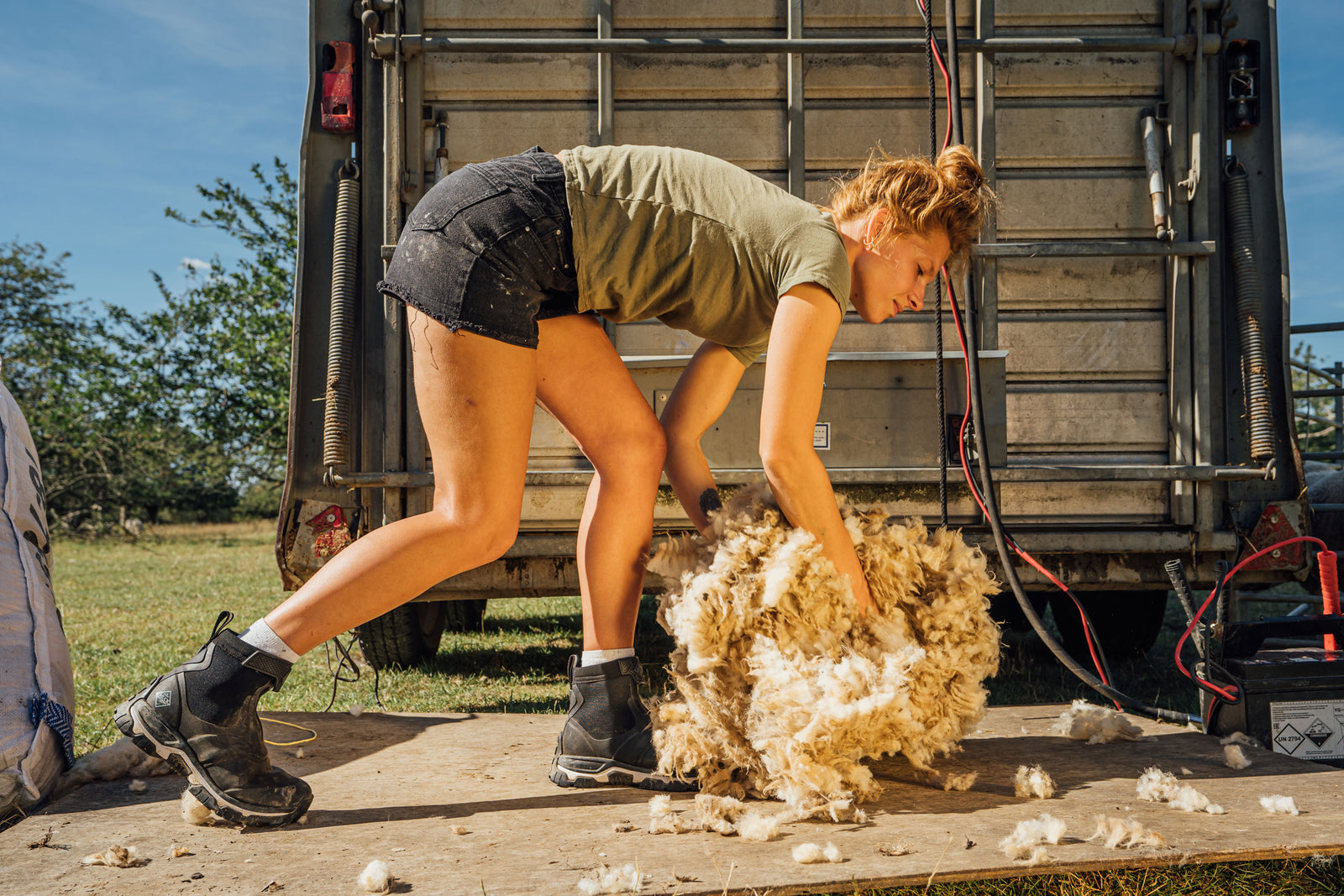By Zoe Colville, The Chief Shepherdess
Although I started my farming career pretty late in life, there is something nostalgic about shearing day. Maybe it's the smell of sweat mixed with sun cream carried on the summer breeze or maybe it's the comfort felt at knowing it's a big job done and you have a month of not panicking about flystrike, a fresh start almost.

We have our sheep's fleeces clipped once a year around mid-July. Farms up and down the country shear at different times to fit in with their animals and their calendar, that's the beauty of farming, every farm is different. Some clip twice a year and some shed their fleeces themselves so there is no need for intervention from humans. We don't shear for monetary gain nor to make them more aesthetically pleasing to increase sales – no, no - it's strictly welfare. In fact, to shear our sheep it will cost us over £1000 and a full day’s work, not only that, we then have a tonne or so of wool to deal with.

Back in times gone by, your annual wool cheque would pay your farm rent plus more. Sadly now due to a lack of demand and the supply of synthetic substitutes, by the time we have paid the shearers and the diesel bill to tow the bags to the depot, we would be making a loss. What a sad state of affairs. Unfortunately it's one of those things you must take on the chin. Although the lanolin (oil) in the fleece has UV protection and temperature regulating properties, it's still more comfortable not to have two kilos of extra weight on your body in 25 degrees plus heat in the summer, also it makes the perfect habitat for flies to lay their eggs. Debris such as bird poos or muck on the wool attracts flies to lay their eggs and in a matter of a day, these hatch into maggots, which then feast on the sheep's flesh if gone unnoticed. I can't imagine how distressing that would be. So, it's non-negotiable, come July the coats are coming off.

Wool is so very versatile, it's fire retardant, it's got antibacterial properties and along with lots more it's one of the best insulators. So why aren't we using wool for our carpets? Our clothes? Our duvets? Although advocating for wool we, ourselves had a feather duvet and so we switched up and now both pillows and duvet are from Floks. British wool, one duvet for both summer and winter, far less sweat (gross) and far better sleep. It's a game changer. A small change for each household to use more wool could see the demand rise once more.
And as for us, this year we are mixing it up, we are going to be selling our wool privately for crafters, gardeners, and spinners. Our wool isn't deemed as desirable as the wool from other breeds and a lot is black or brown which also decreases its value. Dealing directly with the public also gives us a chance to see where it ends up and how versatile it can truly be. KEEP YOU POSTED.
About The Little Farm Fridge
Zoe spent her childhood outdoors with her imaginary animals and tent making. At 18 she moved to London to train as a hairdresser where she spent all her time until she met Chris and slowly migrated back to Kent. Slowly they have built up their flocks and herds until now they have quite a menagerie of animals, grazing pockets of land all over the county (and beyond). One thing is for certain, the passion they have for their livestock is ever present. Even in the wettest winter or the driest summer they strive for nothing but the best.
Related Categories
Wellies for Farming
Steel Toe Work Boots
Apex Outdoor Boots
Read more from The Chief Shepherdess
A Masterclass in Lamb
Zoe Colville on Lambing Season




